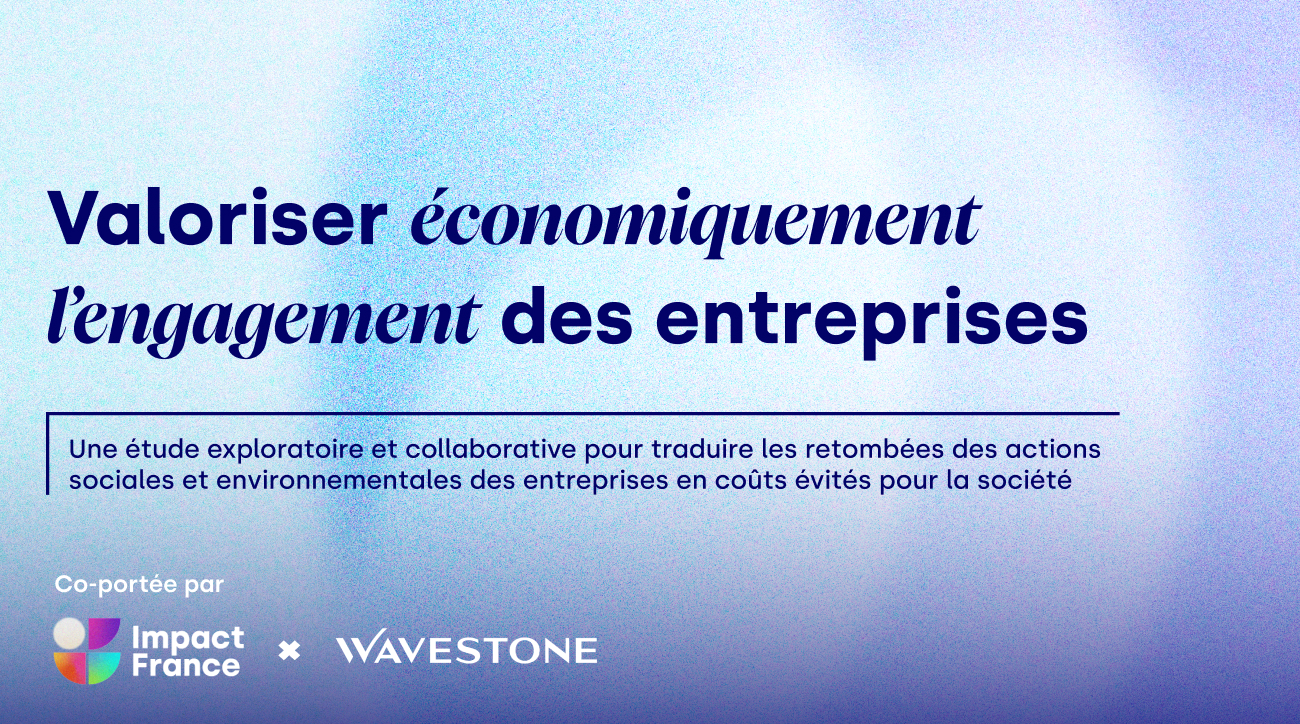Evaluation of the SSE Act: Impact France's recommendations


For Mouvement Impact France, theleading network of positive-impact companies, the evaluation and possible revision of the 2014 SSE law should be an opportunity to clearly position SSE companies as the leading players in the positive-impact economy, and thus support their development in favor of the general interest. To this end, two key issues can contribute to its reinforcement:
The challenge of transforming the name is to make it more visible and easier to understand. ESUS" accreditation, which is largely unknown, does not offer a competitive advantage that would underline the deep commitment of companies. At the same time, the notion of Impact, born and rooted in the SSE, arouses widespread interest and recognition among consumers, but seems to be dissolving without official recognition or marker.
It is also essential to take greater account of the company's ecological impact as a priority issue, which is why we wish to modify the notion of "social utility" and replace it with "social or environmental utility".

Today, the control and assessment procedures for ESUS-accredited organizations are limited to a request for renewal of accreditation without any assessment of Social Impact or Utility. On the other hand, the Pacte law provides for mission-based companies to be subject to annual evaluation and audit procedures for their social and/or ecological mission.
We therefore propose that, in order to bring ESUSs, which are at the forefront of Impact issues, into line with the better-priced obligations of the Loi Pacte, approval should incorporate the procedures that are proving effective for mission-driven companies by introducing the obligation to draw up a "social, environmental and/or solidarity" mission report, frequently audited by an Independent Third-Party Body and approved by its main governance body.
While there are clear rules on management, there are no rules on the sharing of capital in the event of transfer. Here again, the PACTE Act is more ambitious than the SSE for mission-driven companies.
We therefore propose to preserve the principles of value distribution and democratic governance as set out in the ESUS, by adding a mechanism for sharing capital gains on the sale of shares with employees, in the order of 10% of the profit received.
Approval currently incorporates a maximum pay differential of between 1 and 10 SMIC, without taking into account the size of the companies concerned: a significant differential for VSE/SMEs, but too small to be able to integrate larger companies.
As the French State has set a maximum ceiling for its public companies, it seems logical to align ourselves with these practices. We propose that the maximum salary differential between the highest and lowest salaries in a company be limited and modulated according to company size, to a maximum of : 1 to 10 for an SME or micro-business; 1 to 15 for an ETI; 1 to 20 for a large company.
At a time when national and European extra-financial regulations are gathering pace, social and solidarity economy organizations need to remain at the forefront of commitment by setting themselves ambitious targets based on a number of identified criteria. This is what the Impact Score proposes, for example, to reveal and enhance commitment to the pillars that structure the values of the SSE.
Thus, to support the valorization of the social and environmental commitments of SSE companies, the obligation to publish a guide to best practices could be reinforced and replaced by a requirement to make their commitments and transition strategy transparent, objectivized around a common reference framework (of the Impact Score type) and regularly monitored by an OTI along the lines of the work carried out by the cooperative audit . On the basis of these objectives, public support and investment for the SSE could be reinforced and modulated according to companies' level of commitment, in recognition of the diversity of contributions made by SSE companies.
The reference framework would be structured around some thirty main impact objectives on which each company could position itself and continuously improve its ecological and social performance, with shared target objectives:

The impact score would include in its calculation methodology for each indicator a minimum level, a low level, an intermediate level, an advanced level and a target level, which could be defined with the whole of the SSE. This would have the advantage of providing companies with real quantified targets for progress from one year to the next. It also highlights the pioneering commitment of SSE companies to these key transition principles.
Finally, each year, SSE companies should present their global transition plan and their Positive Impact strategy, with ecological and social objectives defined according to the structure's core business.

